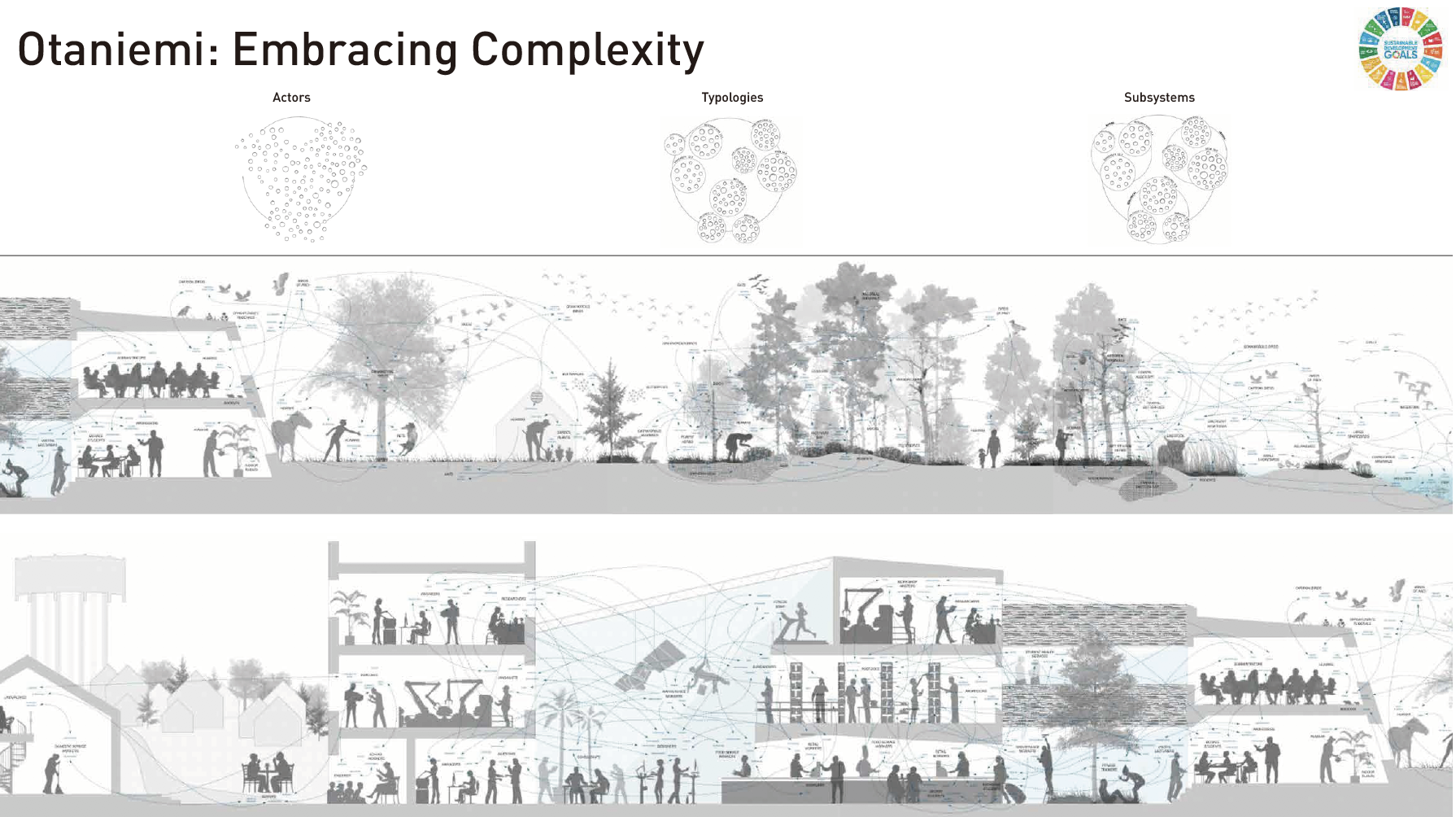
Otaniemi: Embracing Complexity
Landscape Ecology in Planning: Otaniemi 2020>2050
Aalto University
This project is part of a course based in two initial assumptions or hypotheses: Firstly, because of its systemic and pattern: process methods, landscape ecology and urban ecology can activate new ways of thinking and working in other city-related disciplines. Secondly, landscape ecology and urban ecology can foster multi-disciplinary and transdisciplinary approaches to the city by recognizing it as a complex and evolving socio-ecological system. The project identifies the city as a system of heightened complexity, embodied in the intricate weavings of social, ecological and logical subsystems. These weavings are simplified in the language of “connections”– interactions between two entities over a long-time span that benefit one or both of these entities. Current systems of valuing (capitalism) focus on enlarging singular elements and following familiar patterns in order to minimize risk and achieve “optimal” outcomes. This produces a winner-take-all status quo, in social, ecological or logical systems, in which homogeneity and simplification ensure something predictable and profitable (Swyngedouw & Heynen 2003; Kay & Schneider 1994). This system of valuing leads to non-resilience by overlooking the latent values embodied in the complex web of actors required to ensure resilience (Beilin & Wilkinson 2015; Kay & Schneider 1994).
In this project the authors propose an alternative system of valuing that can be used to plan for places and systems which are complex, diverse and as a result, resilient. For this purpose, the authors defined and tested in Otaniemi (Finland) a theoretical and methodological framework to understand, plan and design complex interactions in socio-ecological systems.
